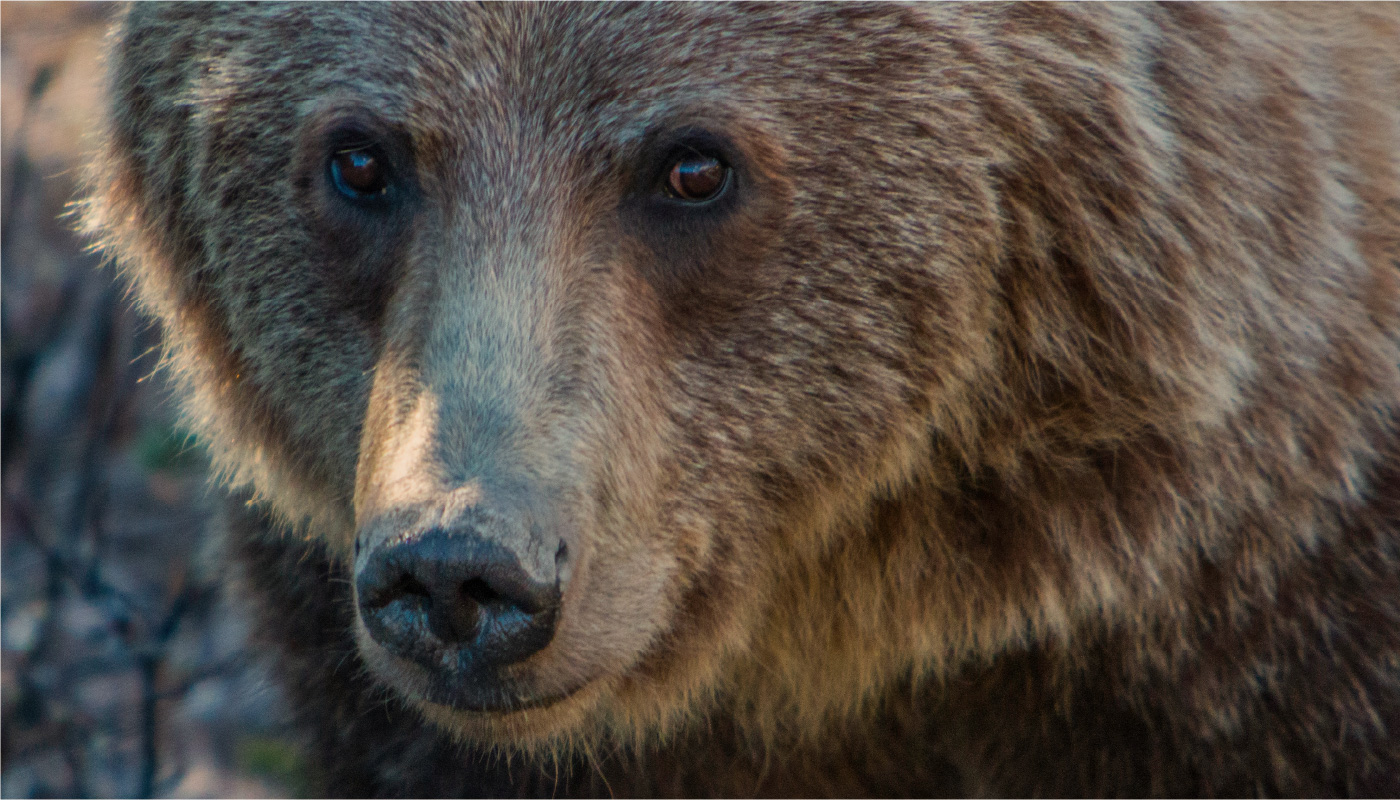Sarah Baker Memorial grant recipient, Dr. Naima Jutha, combines local knowledge and community-based health sampling to help secure a future for mountain caribou in northwest B.C.
When we caught up with Dr. Naima Jutha about the community-based wildlife research she’s been working hard at for the last two years, she had a lot to update us on.
“Caribou health and wildlife conservation, in some of the most remote spaces of British Columbia, done through collaboration with local communities and licensed hunting outfitters? Wow. I never thought I would be involved in something like this, or that I could build a potential career out of it. I am really excited about this work,” says Naima.
Naima received Y2Y’s 2017 Sarah Baker Memorial Award, which provides funds for graduate students or postdoctoral fellows to conduct conservation-related research that helps inform Y2Y’s work. We focus on local issues that have implications for the Yellowstone to Yukon region as a whole and recognize that community knowledge and transdisciplinary approaches are crucial to conserve ecosystems and wild animals. That’s one reason why Naima’s project stood out to us.
In a previous update, we learned about the work Naima was doing in northwestern B.C. Now, in her time wrapping up her graduate research at the University of Guelph (supervised by Dr. Claire Jardine), in collaboration with Dr. Susan Kutz’s lab at the University of Calgary and Dr. Helen Schwantje with the B.C. Wildlife Health Program, Naima brings everything together and looking at how her research findings could apply more broadly to other species and areas.
The project was initiated when the Tahltan Guide and Outfitters Association (TGOA) and Tahltan First Nation expressed concerns over the health and status of northern mountain caribou in their territory. In the early stages, Naima consulted with local outfitters, First Nations elders, hunters and others to hear and help address their perspectives, concerns and questions about caribou conservation. According to Naima, the financial support from the Sarah Baker grant helped immensely during that time.
“The fact that the funding support came in from an organization like Y2Y was a huge boost in confidence — that this project made sense outside my own head and had the potential to make a real difference,” says Naima.
With years of experience as a practicing veterinarian, Naima’s research naturally involved addressing caribou health. By looking at factors such as stress, nutrition, disease and parasites, she hoped to better understand how caribou cope in their rapidly changing habitat. This approach integrated well with a harvest-based wildlife health monitoring program initiated by the TGOA and B.C. Wildlife Health Program in 2016.

During and after hunting season, Naima received and analyzed caribou samples including blood, feces, hair, bones and other organ tissues from the guide-outfitters she partnered with — a perfect example of on-the-ground community science in action. The goal was to better understand how these populations were doing in general, and in the face of natural and human disturbances over years. That’s when the project began shifting and growing in scope.
“There was so much more to know to really appreciate the full picture,” Naima explains.
“Ecological knowledge held by local land-users was the essential missing piece to provide context for wildlife health findings, to better understand current and historical trends, how caribou were coping, and what needs to be done for them to survive and thrive.”
Dr. Naima Jutha, 2017 Sarah Baker Memorial Fund recipient
Fast-forward to fall 2018: Naima interviewed guides, outfitters and community elders to explore their observations and experiences with mountain caribou to try and better understand the health of these herds. One example, she explained, is the perception of caribou fatness.
“’Fatness’, as one measure of caribou health, was actually suggested to me by the people I interviewed. Many think of a ‘healthy’ caribou as having some plumpness to them,” says Naima. “So, we explored observations of fatness within the population. Participants drew graphs of changing body condition over time and piled beans on images of caribou of different fatness to represent how many caribou were in each category.”

After conducting hours of interviews, the task was to take a closer look at the participants’ accounts and summarize the outcomes of the research. In 2019, Naima returned to northern B.C. to once again meet with the local experts she had previously spoken to, bringing findings back and asking questions such as “does the analysis hold true to what you’ve been observing?”
“Naima’s project is a great example of research that’s embedded in the community, and collaborative from start to finish — addressing priority questions, learning from people who know these places like the backs of their hands, and checking scientific results with their expertise,” says Dr. Aerin Jacob, Y2Y’s conservation scientist, who oversees the Sarah Baker Memorial Fund program.
This thorough research contributes to the bigger picture of monitoring wildlife health. It’s particularly relevant in parts of the Yellowstone to Yukon region where wildlife and people are dealing with rapidly warming climate and landscape change. It shows the power of researchers partnering with communities and knowledge holders to study complex problems and applying that information to conservation.
“There’s significant interest in many areas for long-term, community-based wildlife health surveillance initiatives,” says Naima. “Ideally, the framework we’ve been developing in B.C. could one day serve as an instruction manual of sorts. I’m excited to see where and on which species we can apply it next!”
You can read more about Naima’s research in this March 2019 article.
The Sarah Baker Memorial Fund supports student projects that advance Y2Y’s conservation strategy and result in tangible benefits within the region. Sarah Jocelyn Baker’s appreciation for the natural world and ability to find solutions resonate with the aspirations and vision of Y2Y. We are honored to carry her spirit forward through the Sarah Baker Memorial Fund. Thanks to a gift from her extended family, Y2Y is able to offer grants to post-secondary students and postdoctoral fellows pursuing environmentally related studies in any post-secondary institution.


